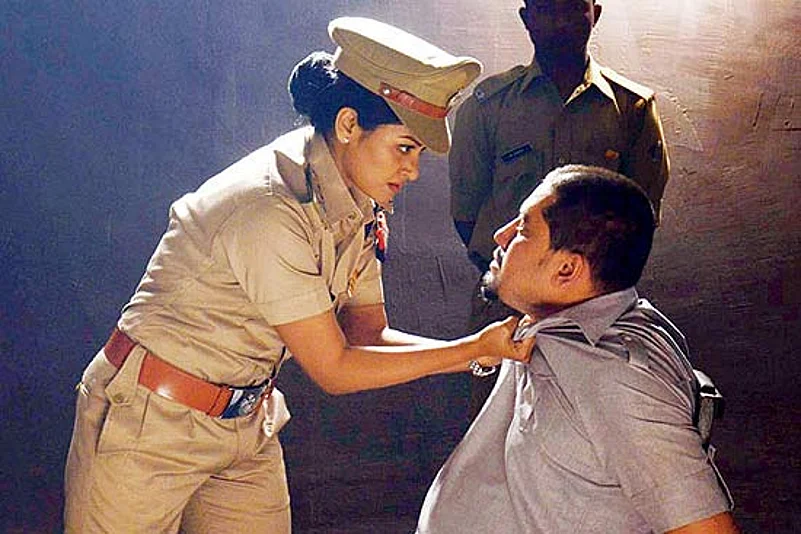Starring: Rupam Chetia, Jupitora Bhuyan, Kapil Bora
Directed by Jahnu Barua
Rating:


Based on the 1997 Sahitya Akademi Award-winning Assamese novel Ashirbador Rong by Arun Sharma, Jahnu Barua’s Ajeyo (The Invincible) links India’s present with how things were on the eve of Independence. If the contemporary segment of the film deals with an idealistic woman cop taking on a minister’s relative who has been accused of rape, the past is about the many struggles roiling the social fabric in the country at a time when it was on the verge of ousting the British. However, it’s the tenuous connect that the film seeks to forge between today and 1946-47 that eventually proves to be its weakness and failing. Yes, this tie-up is there as a sign of hope on impending social change but feels deliberate, sloppy and jarring. The film would have worked as a much better piece of story-telling had it just remained focused on the past.
Thankfully, the segment dealing with the present is confined to the very beginning and towards the end of the film. In the middle is the story of what happened in a tiny village in Assam in the year leading up to India’s independence and the Partition. It’s here that the film gets nicely rooted. Through the eyes of hot-headed revolutionary Gojen Keot (Rupam), we get to understand the place and its people in another era. Jinnah, Gandhi, the riots, communal fissures, all get referred to. Child marriage, the plight of widows, caste differences, Brahmin dominance within the village and moth-ridden customs also get elaborated on, matter-of-factly, just as they were unquestioningly accepted at that age. The film also talks of the rampant land-grabbing that deprived the poor of their sustenance. In effect, the dire social reality and just about every ill of the time is reflected in Ajeyo in some detail. What the film also shows quite effectively is that just like the revolution on the streets, an inner upheaval was happening amongst ordinary people. They were questioning and rebelling against social evils and bringing in change.
But it’s not all preachy. it has its moments of mirth as well. Gojen’s relationship with his grandmother, for instance. It’s in the exchanges between the two that the film’s wit and humour emerge. Gojen describes his grandmother as the only wise one who foresaw the truth in thinking that independence would not change a thing: her back would continue to ache. Late at night, when she mentions a girl to him, he asks her to go to sleep, saying he’ll marry her the next morning. Barua’s is the gentle, slow-paced, old-school style of cinema that seems oddly refreshing in these overtly edgy times. However, the power and compelling touch of his earlier movies goes missing in Ajeyo.






















